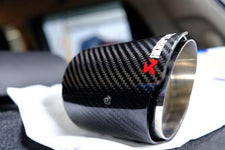Blockage:
The exhaust system may become blocked due to carbon buildup or other debris, leading to poor exhaust flow that can affect engine performance and fuel economy. Repair methods include cleaning the exhaust system or replacing blocked components.
Leakage:
Seals or welds in the exhaust system may develop leaks, causing increased exhaust noise or system failure. Repair methods typically involve replacing seals or performing welding repairs.
Rust and corrosion:
Exhaust system components may corrode or rust over time due to exposure to harsh environmental conditions, leading to leaks or component failure. Repair methods include cleaning, rust removal, and applying protective coatings, or replacing corroded components.
Hang or damage:
Exhaust system components may hang or become damaged due to vehicle collisions or improper use. Repair methods include repairing or replacing damaged components.
Vibration and noise:
Loose or damaged exhaust system components may produce vibrations and noise. Repair methods include inspecting and tightening connections or replacing damaged components.
Exhaust pipe leaks:
Leaks may occur at the connection points of the exhaust pipes, leading to system failure or increased emissions. Repair methods include inspecting connections and replacing seals or pipe sections.
Wear and tear:
Exhaust system components may experience wear and tear over time, leading to performance degradation or failure. Repair methods include inspecting and replacing worn components.
Repairing exhaust system issues typically requires the expertise of a professional automotive technician to ensure safety and effectiveness. Regular inspections and maintenance can help prevent exhaust system faults from occurring.







